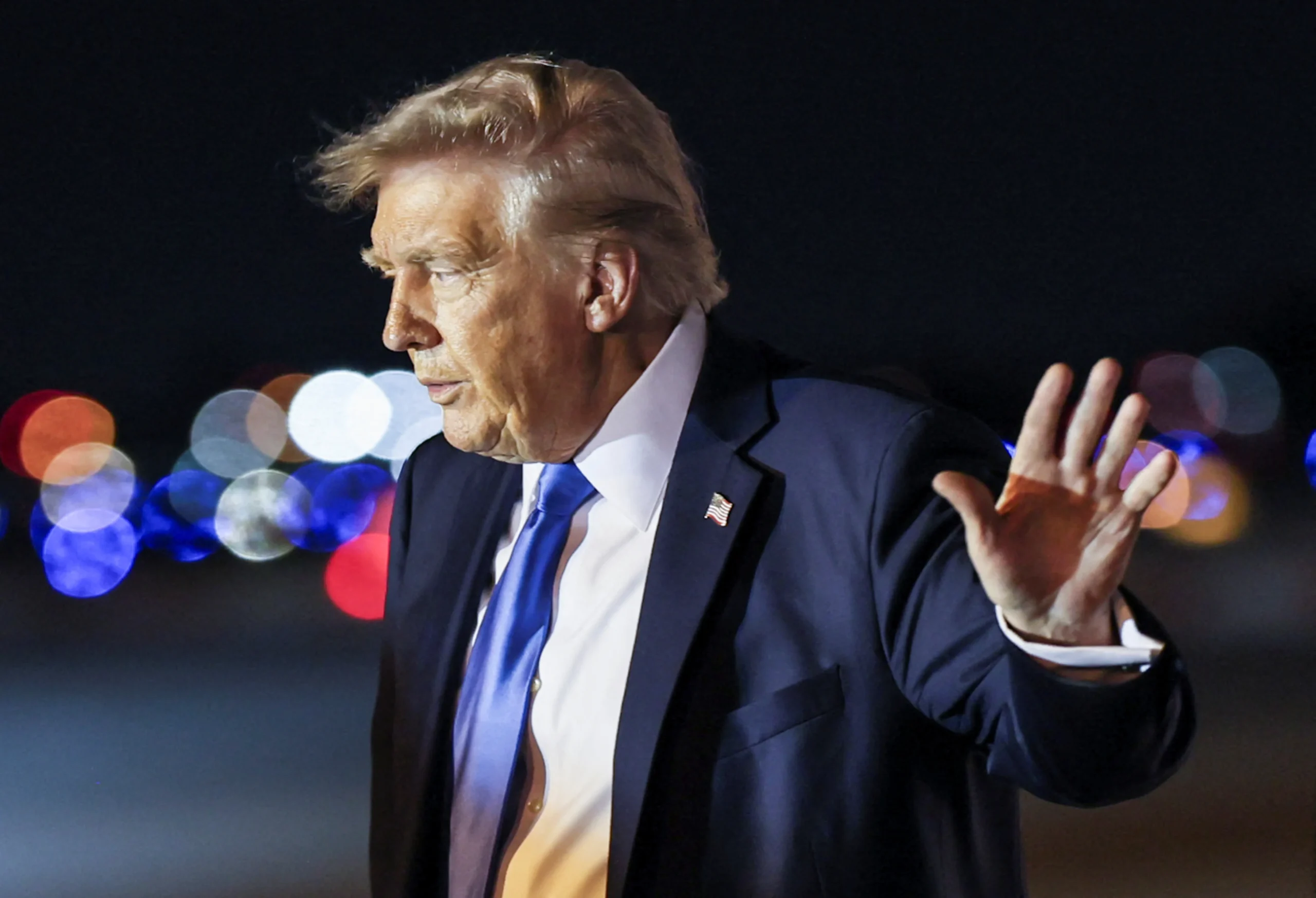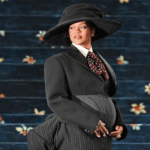
President Donald Trump has expressed uncertainty about whether people in the United States are entitled to constitutional due process rights as his administration pursues aggressive deportation of immigrants who entered illegally and non-citizens, including some detained for pro-Palestinian activism and political speech.
In an interview recorded Friday at Mar-a-Lago and aired Sunday on NBC’s Meet the Press with Kristen Welker, Trump responded to a question about Secretary of State Marco Rubio’s assertion that “of course” all people in the US are entitled to due process.
“I don’t know. I’m not, I’m not a lawyer. I don’t know,” Trump said, suggesting such requirements would necessitate “a million or two million or three million trials.”
The Fifth Amendment to the Constitution provides for “due process of law” during criminal prosecution, while the 14th Amendment states that no state can “deny to any person within its jurisdiction the equal protection of the laws.”
Trump indicated his administration would “follow what the Supreme Court said” while expressing frustration that courts were impeding his deportation efforts. “I was elected to get them the hell out of here, and the courts are holding me from doing it,” he stated, characterizing deportees as “some of the worst, most dangerous people on Earth.”
On April 19, the Supreme Court temporarily blocked the Trump administration from deporting Venezuelan migrants accused of gang membership. The administration has invoked a rarely used 18th-century wartime law and urged justices to lift or narrow their order.
US Solicitor General Dean John Sauer claimed detainees receive advance notice of removal and have “adequate time” for judicial review. However, the administration has deported hundreds without providing evidence of gang membership. In one notable case, authorities ignored a court order protecting Kilmar Armando Abrego Garcia from deportation to El Salvador, later acknowledging an “administrative error.”
During the interview, Trump also addressed speculation about a third presidential term, stating it’s “not something I’m looking to do” and acknowledging “to the best of my knowledge, you’re not allowed to do” it. The Constitution’s 22nd Amendment states: “No person shall be elected to the office of the President more than twice.”
On economic matters, Trump described the US as in a “transition period” but predicted it would perform “fantastically” despite tariff-related disruptions. When Welker mentioned some Wall Street analysts’ increased recession concerns, Trump countered, “Some people on Wall Street say that we’re going to have the greatest economy in history.”
He deflected responsibility for the first quarter’s 0.3 percent economic decline, claiming “the good parts are the Trump economy and the bad parts are the Biden economy.”
Trump also stated he wouldn’t remove Federal Reserve Chair Jerome Powell before his term ends in 2026, despite previously threatening to fire him over interest rate policies.
Regarding TikTok, Trump indicated he would extend the June 19 deadline for China-based ByteDance to divest US assets if no deal materialized. He expressed a “sweet spot” for the platform, crediting it with helping him win young voters in 2024, adding “, TikTok is–it’s very interesting, but it will be protected.”












Be the first to leave a comment